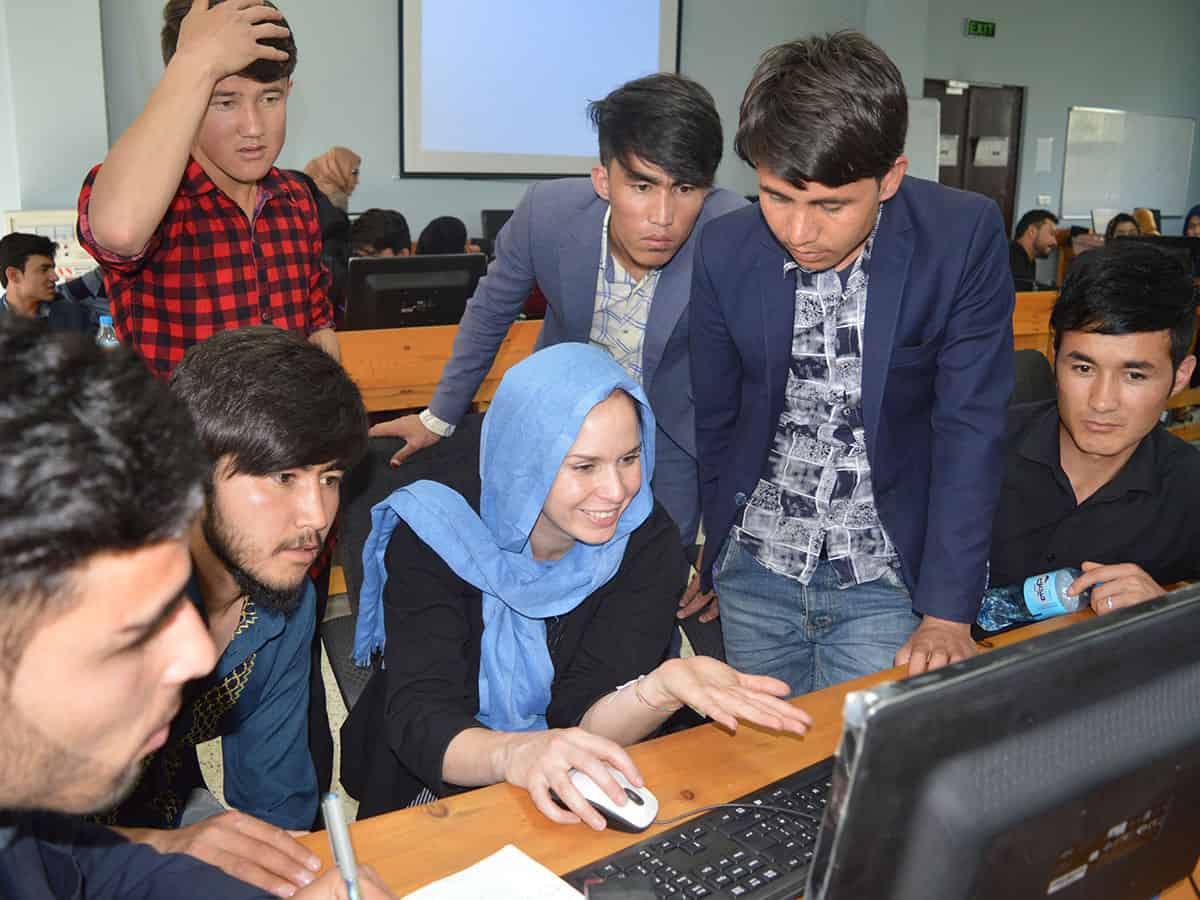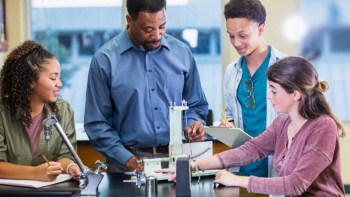Kate Shaw, who has taught physics in several war-torn countries, says we must continue to support colleagues who work and study in such unimaginably difficult environments

When I first started working in Palestine in 2012 some colleagues had reservations about going to a country that was still at war. “Until peace is in place, how can one seriously and sustainably build up institutions and infrastructure in order to do scientific research?” they warned me. I was there as part of the Physics Without Frontiers programme run by the International Centre for Theoretical Physics (ICTP) in Trieste, which promotes physics and supports physics students and faculty in developing countries.
They had a valid point. The first time I visited the Islamic University of Gaza in 2013 – a very good university that has produced several top physics students, many of whom came through the ICTP’s programme – the physics labs had only just been rebuilt after being bombed in 2008 during the Gaza War. The new building was still lacking fundamental equipment and less than a year after my first visit in 2012, the next war brought more bombs. The effort to rebuild had to begin again.
In March 2018, when I said that I was going to work on a similar programme in Kabul, Afghanistan, I received the same remarks. “Afghanistan is still at war. It makes no sense to be trying to build physics research when the country is in conflict,” they said. The physics faculty at Kabul University was first established in 1942, but the labs were completely destroyed in the 1990s during the 30 or more years of continuous war that the Afghan people have endured. Attacks occur often – even in the government-controlled capital, security is a constant problem. Yet the department reopened in 2016.
If we ignore nations in conflict, the scientific capacity of those countries will nosedive
I was involved with teaching more than 100 physics students at the university and I was struck by their resilience and dedication. Indeed, it is a source of constant inspiration that people who study physics in such unimaginably difficult environments, have such a love and passion for the subject and a dedication to their studies. This is what the Physics Without Frontiers programme is all about – supporting and promoting physics and mathematics in developing countries where governmental support, infrastructure and funding is lacking.
Since 2018, the programme in Afghanistan has gone from strength to strength. We have run two physics schools in Kabul with a third planned for next year. We are working with two faculty members as they do their Master’s degree with ICTP and we partnered with the Institute for Advanced Studies in Basic Sciences in Iran to give five top Afghan students scholarships to study a Master’s in physics. At the same time, we are supporting Kabul University to create its own Master’s programme in physics – the first in the country – and will be working with Iranian collaborators to help provide training for Afghan lecturers. The success is only possible thanks to the hard work and passion of our volunteers from Iran, Italy, Sweden, the UK and elsewhere.
Expanding support
Universities in other nations that are in conflict – for example, Iraq, the Democratic Republic of Congo, Somalia and Yemen – suffer similar problems to those facing Palestine and Afghanistan. Day-to-day security problems mean universities struggle to function, as they could be attacked or otherwise forced to close. Students risk their lives travelling each day to classes. Little collaboration can develop between universities within the country due to the lack of infrastructure and security.
Students who choose physics instead of more directly employable subjects such as medicine, engineering, law or journalism, are torn between a love of their subject, and a lack of future opportunities. There are often no Master’s degree options and rarely PhD positions, nor are there research opportunities or jobs in industry.
Physics Without Frontiers is looking to expand its support of physics programmes in conflict areas. We aim to work with volunteers from every country to organize schools, courses and roadshows, combined with mentoring and support for faculty and institutions, to help build the next generation of scientists. It is working with these passionate students that clearly shows why we must support research institutions in conflict countries. Helping to build scientific capacity supports the development of the country, during and after conflict.
The research gap is widening between richer and poorer countries. If we ignore nations in conflict, the scientific capacity of those countries will nosedive. Not only will we lose a whole generation of scientists but, once the conflict has ended, building scientific institutions from scratch without local scientists will be near impossible.
The scientific community is bound together by a shared passion for our subject and the goal of advancing it. Therefore, we must support each other, especially when our colleagues are operating in conditions that we would find impossible. They risk their lives each day to pursue knowledge, working with little or no resources, funding or collaboration, in a country at war. We must reach out to them and collaborate.



